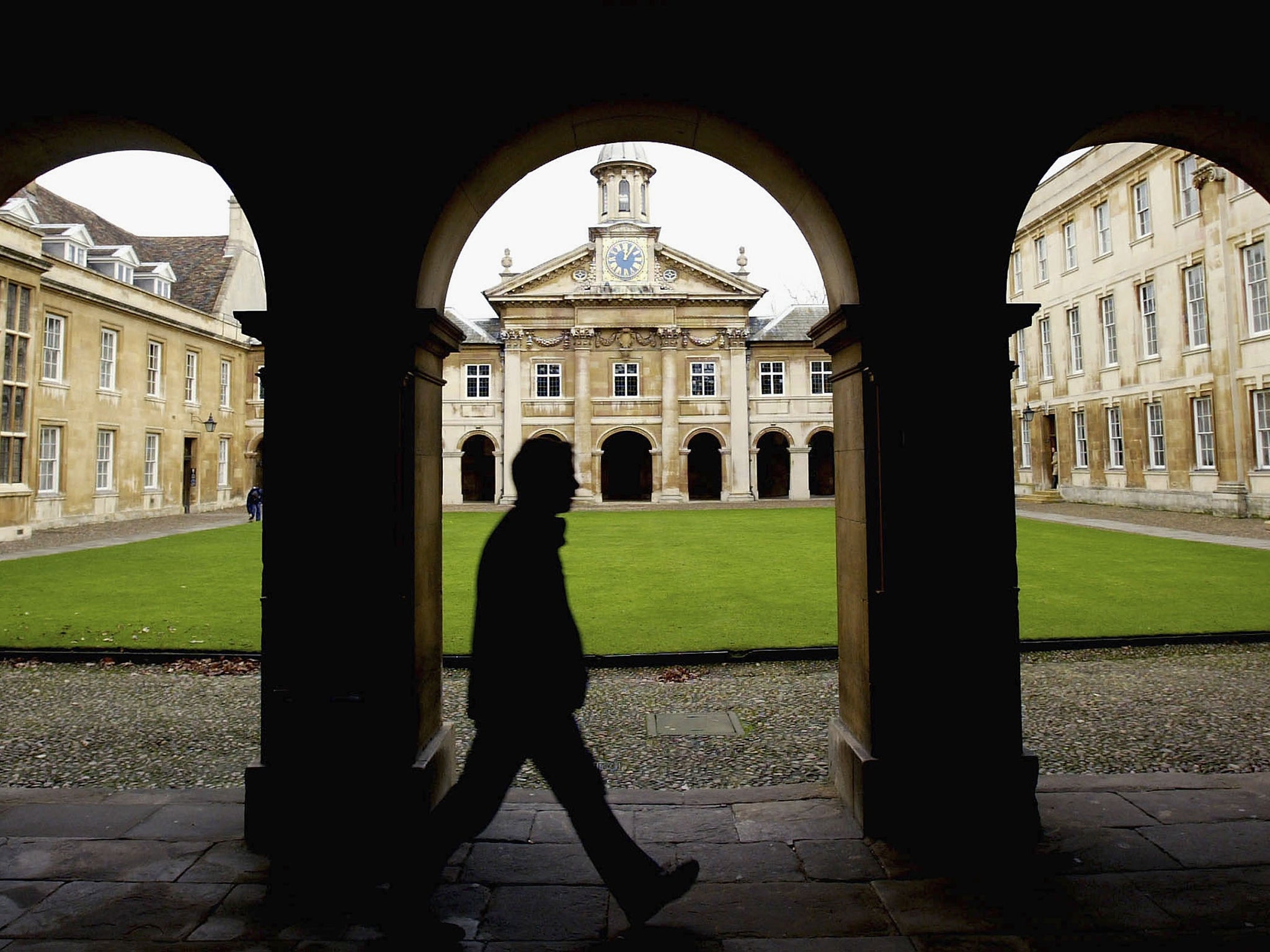Calls for Cambridge to 'decolonise' English curriculum by adding minority ethnic authors to reading lists
'For too long, teaching has encouraged a traditional approach that elevates white male authors at the expense of all others,' says student union officer

Calls for black and ethnic minority writers to become a compulsory feature of English courses at the University of Cambridge have been made under new plans to "decolonise" the curriculum.
It follows an open letter titled "Decolonising the English Faculty" that was signed by more than 100 students. Written by the student union's women's officer, Lola Olufemi, the letter argues that the current syllabus bolsters systemic racism.
“For too long, teaching English at Cambridge has encouraged a ‘traditional’ and ‘canonical’ approach that elevates white male authors at the expense of all others,” she wrote, according to The Daily Telegraph.
“What we can no longer ignore, however, is the fact that the curriculum, taken as a whole, risks perpetuating institutional racism.”
Under the proposals discussed by the English Faculty's Teaching Forum, which act only as recommendations, academic staff will start "actively seeking to ensure the presence of BME tests and topics on lecture lists".
Reading lists would be diversified under the plans, with professors being encouraged to share BME literature suggestions with one another.
An introductory series of lectures offering a global perspective on English literature is also under consideration.
Dr Priyamvada Gopa, a teaching fellow at Churchill College and member of the Teaching Forum, told the university newspaper Varsity the measures were "a good start".
“I think it is important, however, to view the inclusion of postcolonial and BME texts not as an endpoint but [as] the beginning of a discussion about what English literature is and what exclusions it has always relied on," she added.
“The curriculum first needs to make empire, race, identity more central than it has been — something students have to engage with rather than are allowed to engage with."
Yet, Gill Evans, emeritus professor of medieval theology and intellectual history at the university, told The Telegraph that the drive to include non-white authors could misrepresent the historical picture of English literature.
"If you distort the content of history and literature syllabuses to insert a statistically diverse or equal proportion of material from cultures taken globally you surely lose sight of the historical truth that the West explored the world from the sixteenth century and took control – colonially or otherwise – of a very large part of it. It is false to pretend that never happened," she said.
A spokesman for the University of Cambridge said: “While we can confirm a letter was received from a group of students taking the postcolonial paper, academic discussions are at a very early stage to look at how postcolonial literature is taught. Changes will not lead to any one author being dropped in favour of others – that is not the way the system works at Cambridge. There is no set curriculum as tutors individually lead the studies of their group of students and recommend their reading lists – those reading lists can include any author.
“The Teaching Forum is a body which has no decision making powers and its decision points are questions to be discussed by the faculty. The Education Committee in the faculty will look at those points in a robust academic debate. Postcolonialism is taught at the moment in a non-compulsory paper – the faculty constantly looks at what papers will be compulsory. We condemn the related harassment directed towards our students on social media as a result of the recent coverage.”
Cambridge and Oxford universities have been accused of failing to engage in a serious debate over their lack of diversity after it emerged that 15 Oxbridge colleges failed to offer any places to black British applicants in 2015.
More than 100 MPs called on the vice-chancellors of the universities to take "urgent action" to help disadvantaged students and those from under-represented areas gain an Oxbridge education.
-
An earlier version of this article stated that black and ethnic minority writers were to become a compulsory feature of English courses at the University of Cambridge. The calls for diversification were in fact recommendations only and the university hasn't made any decisions to change the way English is taught. We have corrected the article accordingly.
Join our commenting forum
Join thought-provoking conversations, follow other Independent readers and see their replies
Comments
Bookmark popover
Removed from bookmarks